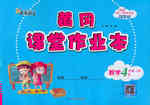题目内容
Only to use this reading room. Students have another room on the second floor.
- A.are the teachers allowed
- B.are allowed the teachers
- C.the teachers are allowed
- D.the teachers allowed
试题分析:考查倒装句的特例:这里的only修饰主语teachers,不是用来修饰状语的,所以不用倒装。句意:只有老师允许进入这个阅览室,学生在第二层有另外的房间。
考点:考查倒装句
点评:only后面只有接状语,如:介词短语,副词,或状语从句,后面才用倒装句。

 中考利剑中考试卷汇编系列答案
中考利剑中考试卷汇编系列答案 教育世家状元卷系列答案
教育世家状元卷系列答案 黄冈课堂作业本系列答案
黄冈课堂作业本系列答案A new era is upon us. Call it what you will: the service economy, the information age, the knowledge society. It has changed the way we work. Already we’re partly there. The percentage of people who earn their living by making things has fallen dramatically in the Western World. Today the majority of jobs in America, Europe and Japan (two thirds or more in many of these countries) are in the service industry, and the number is on the rise. More women are in the work force than ever before. There are more part-time jobs. More people are self-employed. But the breadth (广度) of the economic transformation can’t be measured by numbers alone, because it also is giving rise to a basic new way of thinking about the nature of work itself. Long-held concepts about jobs and careers, the skills needed to succeed, even the relation between individuals and employers — all these are being challenged.
We have only to look behind us to get some sense of what may lie ahead. No one looking ahead 20 years possibly could have foreseen the ways in which a single invention, the chip (芯片), would transform our world thanks to its applications in personal computers, digital communications and factory robots. Tomorrow’s achievements in biotechnology, artificial intelligence or even some still unimagined technology could produce a similar wave of dramatic changes. But one thing is certain: information and knowledge will become even more important, and the people who possess it, whether they work in manufacturing (制造业) or services, will have the advantage and produce the wealth. Computer knowledge will become as basic a requirement as the ability to read and write. The ability to solve problems by applying information instead of performing routine tasks will be valued above all else. If you cast your mind ahead 10 years, information services will be predominant (最重要的). It will be the way you do your job.
1.One of the great changes caused by the knowledge society is that ______.
|
A.most people have to take part-time jobs |
|
B.people have to change their jobs from time to time |
|
C.people’s traditional concepts about work are no longer completely true |
|
D.the difference between the employee and the employer has become unimportant |
2.The future will probably belong to those who ______.
|
A.have more brains |
|
B.are involved in the service industries |
|
C.cast their mind ahead instead of looking back |
|
D.possess and know how to make use of information |
3.Which of the following would be the best title of the passage?
|
A.Computers and the knowledge society |
|
B.Features and meanings of the New Era |
|
C.Service Industries in the Modern Society |
|
D.Rapid Advancement of Information Technology |
34.He took his washing machine just bought dozens of days previously for 1800 yuan in the Guo Mei Applicance in for repair it needed replacing rather than _______
|
A.having been told, being repaired |
B.only to be told , being fixed |
|
C.just to be told, being mended |
D.having been told, to be fixed |
